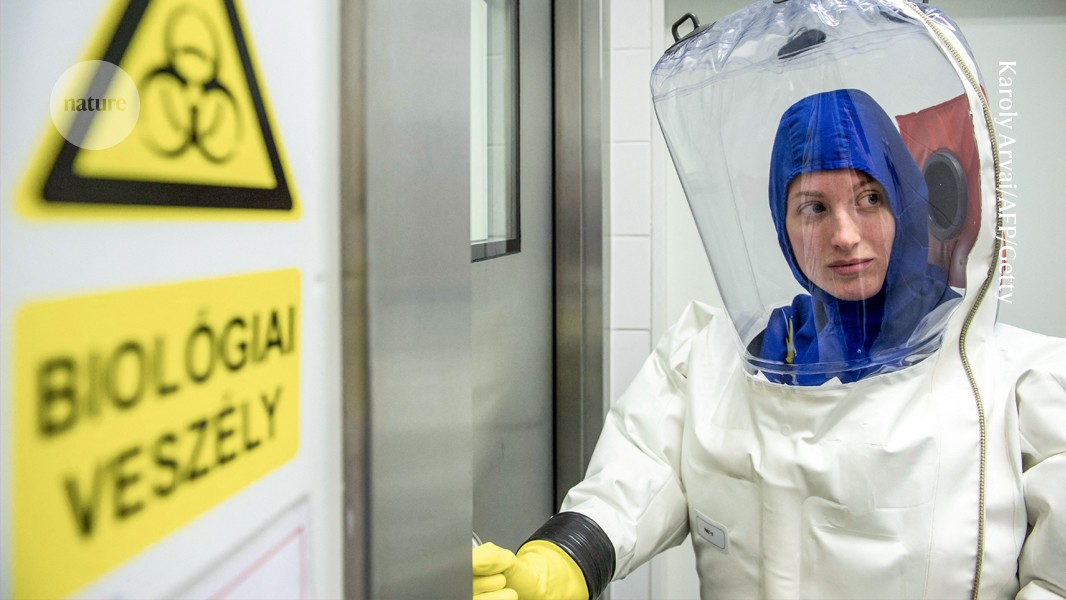Researchers who ‘pivot’ into new fields should not be given a citation penalty It should be incentivized, encouraged and celebrated

The COVID-19 pandemic showed the value of changing direction in research

Many researchers pivoted to studying SARS-CoV-2 during the COVID-19 pandemic, but such shifts in research focus come with a cost in citations.Credit: Karoly Arvai/AFP/Getty
During the COVID-19 pandemic, scientists spanning many disciplines joined a huge global effort to study the SARS-CoV-2 virus. They helped to monitor its spread, analysed its impact and contributed to the development of vaccines and treatments. Nature’s news team has reported how researchers in disciplines from ecology to artificial intelligence and architecture were ‘pivoting’ away from their primary fields to research the virus. Studies showed the diversity of COVID-19 research teams1.
But how might such pivots affect a scientist’s career prospects? An answer to this question comes in a paper published this week in Nature2, and it’s not altogether encouraging. It suggests that those in positions of responsibility in science need to be doing more to incentivize researchers who wish to work with colleagues in different fields.
Ryan Hill, an economist at Northwestern University in Evanston, Illinois, and his colleagues found that the further away a researcher moves from their primary research field, the fewer citations their newer works receive. They call this phenomenon the ‘pivot penalty’, given that citations are often used as an indicator for the impact of research and play a part in job-promotion decisions.
The researchers’ conclusion comes from analysing millions of scientific articles and US patents from the past five decades. To measure how far a paper strays from an author’s previous work, the researchers compared the list of journals that a newer paper cited with those in the author’s earlier publications. From this, they assessed whether the paper builds on a similar body of knowledge or whether it marks a shift into fresh territory. According to the analysis, the negative effects of pivoting can be found in most research fields. These effects have intensified over time.
There are extremely good reasons why researchers focus on achieving advances in their own fields — incremental change and the occasional breakthroughs are, after all, the lifeblood of scientific progress. At the same time, the world needs more researchers who can change direction and collaborate with colleagues with ideas and experience from another discipline. That doesn’t necessarily mean a permanent pivot, but more so being open to new domains. Sometimes, working with researchers from outside the field can be a good way to attack old problems in new ways.
Studies show that interdisciplinary teams eventually generate more knowledge that has impact than do teams rooted in a single discipline, even though it might take them longer to produce results, because they need time to develop a common language3. What’s more, global challenges, such as preventing the spread of infectious diseases or curbing climate change, do not neatly sit inside disciplinary boxes. Solving them will need more researchers to be able to step outside their usual domains.
Some researchers will already have a record of, if not a reputation for, working with colleagues from different disciplines. The pivot penalty comes when anyone makes the shift away from what they were doing before, to doing something new.
Penalty points
There are strategies that researchers can adopt to minimize the pivot penalty. Hill and colleagues, for example, found that the penalty is attenuated when researchers publish their new work in a journal that they have already published in, reaching a familiar audience.
Caroline Wagner, who studies science policy at the Ohio State University in Columbus, and her colleagues4 showed that Nobel prizewinners in physiology or medicine were much more likely, compared with equally well-regarded scientists, to have collaborated with colleagues from fields that were distant from their own. “If we’re looking for that spark, then we’re looking for those people that recombine things that don’t seem to belong together,” Wagner says. Nurturing that spark is surely something science must learn to do better.
These new findings must therefore be closely studied by those who evaluate the work of researchers. The world needs researchers to be able to hop outside their areas of specialism, even if only once in a while, without a penalty to their career. That means ensuring that citation impact is not emphasized over measures that recognize such collaboration. As James Wilsdon, director of the Research on Research Institute in London, says, the value of a paper lies beyond its citation counts.
doi: https://doi.org/10.1038/d41586-025-01637-4
This story originally appeared on: Nature - Author:furtherReadingSection


















